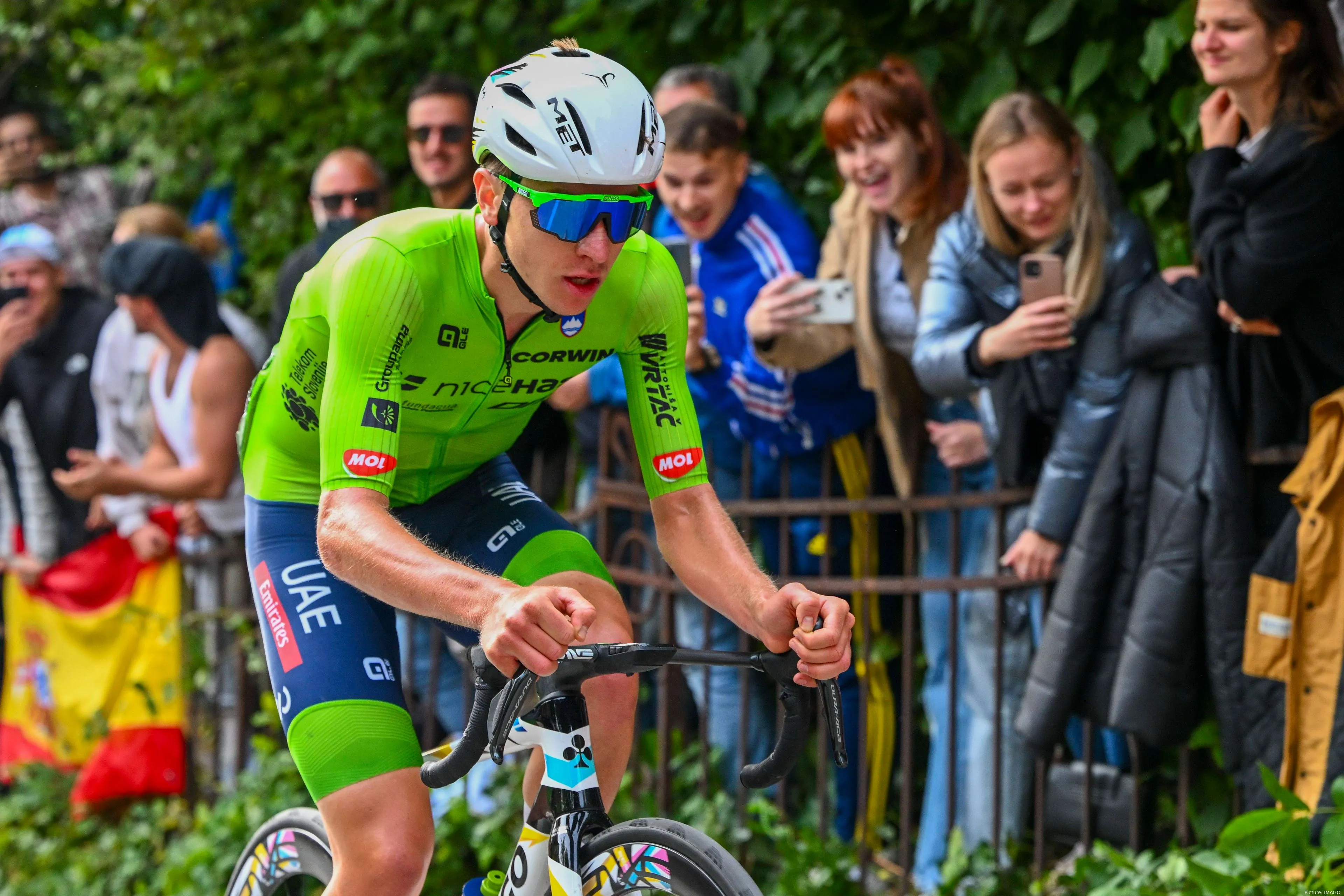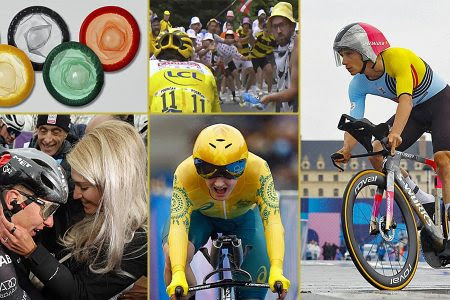The 2024 cycling season is set to be full of thrilling moments and unpredictable contests for dominance.

Michael Boogerd, the former Dutch professional cyclist and current
commentator, has raised some intriguing points about the future of cycling’s
elite ranks. In a recent interview, Boogerd expressed skepticism about the
possibility of Tadej Pogacar repeating his extraordinary dominance in the
sport next year. Pogacar, the Slovenian cycling phenom who has won multiple
Grand Tours and Monument Classics, has long been viewed as a rising star,
with many believing he could continue to define the next era of professional
cycling. However, Boogerd’s remarks suggest that the competition in 2024
could look very different.
While Pogacar’s performances in the 2023 season were nothing short of
extraordinary, Boogerd’s insight reflects the belief that even the best athletes
face natural limitations and challenges. One of the key factors, according to
Boogerd, is the nature of cycling itself—a sport characterized by ever-evolving
competition, unpredictable races, and shifting dynamics within teams.
The Nature of Extreme Dominance.
Pogacar’s rise to prominence has been meteoric, particularly with his stunning
victories in the Tour de France, where he outclassed some of the world’s best
riders. His ability to attack with relentless force in mountain stages, his time-
trial prowess, and his adaptability on all terrains have made him the rider to
beat. However, Boogerd doesn’t believe that we will see the same kind of
dominance from Pogacar in 2024.
“The nature of cycling means no rider can maintain that extreme level of
dominance for years on end,” said Boogerd. “We’ve seen it before in the sport.
Riders rise to the top, but other teams and riders will always find ways to
challenge them.” Boogerd’s point is that the intensity of competition in cycling,
along with the various factors that influence a rider’s form—from injuries to
the psychological toll of sustained success—means that no champion can
dominate without facing obstacles.
The Return of Rivals and New Challenges.
One of the main reasons Boogerd believes Pogacar’s reign could be challenged
is the return of several strong competitors, including Jonas Vingegaard, who
has already proven himself to be a formidable rival after winning the Tour de
France in 2022. Vingegaard’s strategic approach and robust climbing ability
make him a serious contender to battle Pogacar for supremacy in 2024.
Additionally, the potential of younger riders like Remco Evenepoel, who has
shown his own brilliant form, is also a factor in the shifting dynamics of the
cycling scene.
“We’re going to see the competition ramp up, and it’s not just about Pogacar
anymore. Riders like Vingegaard and Evenepoel are all set to challenge him,”
Boogerd explained. These rivalries, particularly the one between Pogacar and
Vingegaard, have the potential to create an entirely different dynamic than
what we saw in previous years.
Another challenge for Pogacar could be the strategy of his own team. UAE
Team Emirates, Pogacar’s current team, will have to adapt to the changing
competitive landscape, balancing their support around Pogacar with a possible
increase in demands from other riders on the team. Cycling teams are living
entities that constantly adjust to new realities, and Boogerd points out that a
changing team structure could influence Pogacar’s dominance.
Fatigue and Mental Factors.
As with any athlete in any sport, the mental and physical fatigue of sustained
success is a real threat. Boogerd suggests that Pogacar, while young and full of
potential, may also face a mental toll after years of performing at the highest
level. “It’s not just about physical strength; it’s about the mental challenges of
keeping your motivation high after so many victories,” said Boogerd. As
Pogacar becomes a more marked man in the peloton, every move he makes
will be scrutinized, and the pressure will mount. It’s a challenge that only the
strongest mentally can overcome.
While Pogacar has shown remarkable resilience and hunger for success,
Boogerd emphasizes the importance of resilience in the face of adversity.
“He’ll need to adapt and grow even more as a rider. But sometimes, no matter
how good you are, things don’t go according to plan, and it’s a question of how
you handle those setbacks.”
A Changing Era.
Cycling is a constantly evolving sport, and Boogerd suggests that 2024 might
mark the end of an era of extreme individual dominance. The rise of new
rivals, the evolution of strategies, and the unpredictability of races mean that
no rider, no matter how talented, can remain on top forever. While Pogacar is
undoubtedly a formidable force, Boogerd’s comments highlight the reality that
even the best can face obstacles that challenge their dominance.
“Don’t get me wrong, Pogacar will still be a contender,” Boogerd concluded.
“But I don’t think we’ll see that same kind of one-man show again next year.
The competition is just too strong.” Whether or not Pogacar will be able to
fend off the challenges and maintain his place as the sport’s dominant figure
remains to be seen. But one thing is certain: the 2024 cycling season will be
filled with excitement and unpredictable battles for supremacy.



